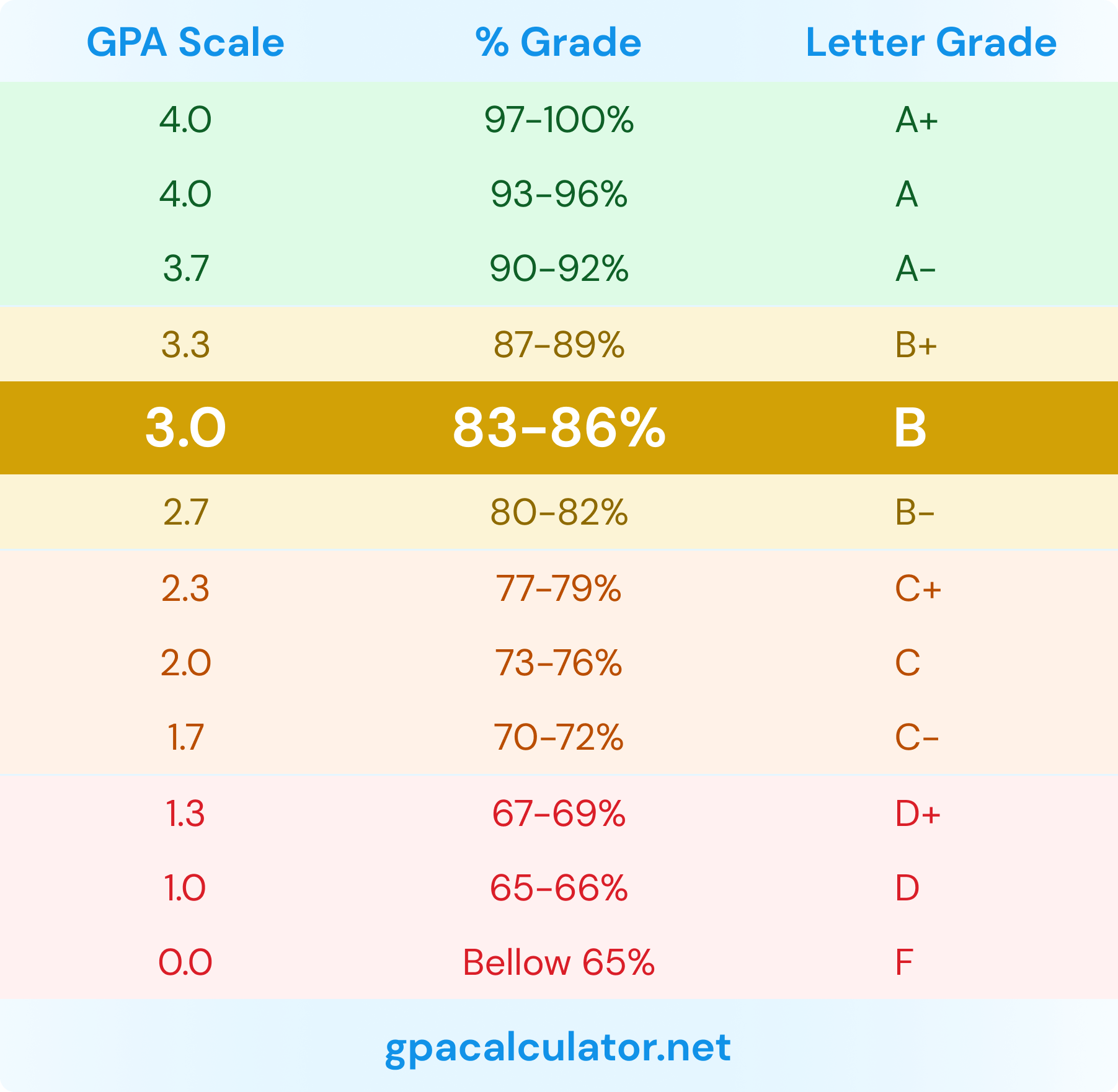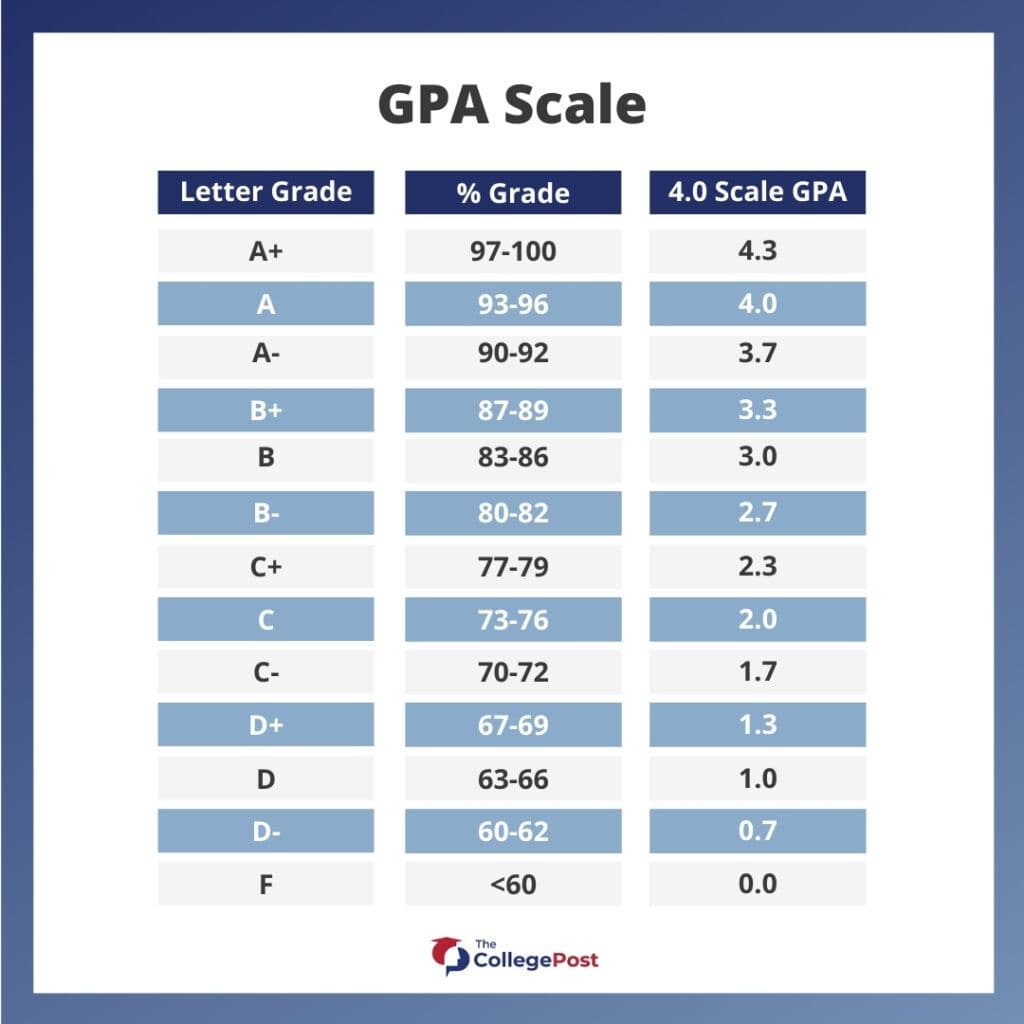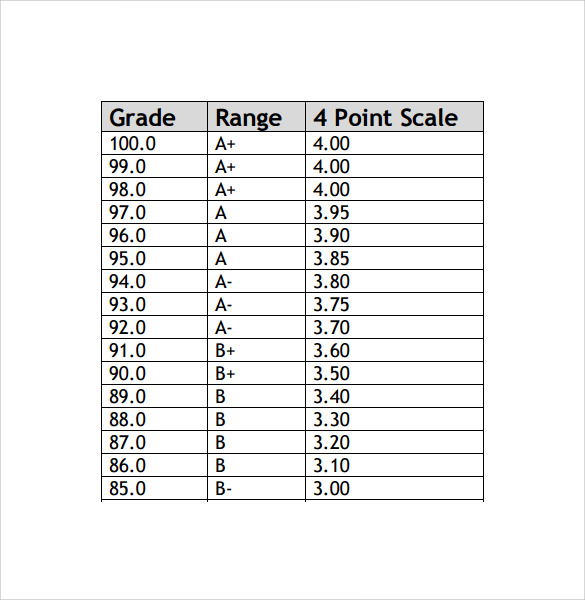Has Someone Ever Had A 5.0 GPA? Unpacking Academic Achievement In Today's Schools
The question, "Has someone ever had a 5.0 GPA?" is one that often pops into people's minds, especially when talking about school. It’s a pretty interesting thought, you know, because it makes you wonder about the very top of academic success. This question itself uses the word "has," which, as we might remember, is the form of the verb "to have" used for a single person or thing, like when you say, "She has a book." It’s a simple word, but it opens up a rather complex query about school achievements.
Many students, and their parents too, sometimes feel a bit of pressure to do really well in school. They might hear stories about amazing students and wonder what the absolute best score could possibly be. So, this idea of a 5.0 GPA, it kind of floats around as a symbol of ultimate academic performance, perhaps even beyond what most people consider possible. You know, it's like a goal that seems out of reach for nearly everyone.
This article will look into whether a 5.0 GPA is something a person can truly get. We will also talk about how GPA works in different schools and what really matters when it comes to learning. We’ll also, like, clear up some common ideas about getting very high grades. You'll get a better picture of what academic success really means, and it's not always just about the numbers, in some respects.
- Cillian Murphy Plane Movie
- Brad Pitt Once Upon A Time In Hollywood Sequel
- Morgan Freeman Left Hand Amputated
- Benedict Cumberbatch Face Shape
- Denzel Washington House
Table of Contents
- Understanding GPA Scales: What Does a 5.0 Really Mean?
- The Quest for Perfection: Is a 5.0 GPA Achievable?
- The True Value of a High GPA: More Than Just Numbers
- Dispelling Myths About Perfect Scores
- Frequently Asked Questions About Top GPAs
Understanding GPA Scales: What Does a 5.0 Really Mean?
To figure out if a 5.0 GPA is possible, we first need to get a good grasp on how grading systems generally work. There are, you know, different ways schools measure how well students are doing. Knowing these differences is pretty important to understand what a high GPA truly represents. It's not just one simple system, as a matter of fact.
The Standard 4.0 Scale
Most people are familiar with the standard grading system. It's the one where an A is worth four points, a B is three, and so on. This system is pretty common across many schools, and it gives a simple way to measure how well a student is doing in their classes. So, a perfect score on this scale would be a 4.0, which means getting all A's.
If a student earns all A's in their courses, their GPA will be a 4.0. This is, you know, what many consider to be the highest possible achievement within this basic structure. It reflects excellent performance in every subject they take. This traditional way of looking at grades has been around for a very long time, actually.
- Cillian Murphy Height
- Clint Eastwood Full Name
- Steve Buscemi Height
- Brad Pitt In Fury
- Joaquin Phoenix Gladiator Thumbs Down
However, this traditional scale does not, in fact, allow for a GPA higher than 4.0. So, if someone is only taking regular classes and their school uses this straightforward system, then a 5.0 GPA just isn't something that can happen. It's a bit like trying to fit more water into a cup that is already full, you know, there's a limit.
Weighted GPA Systems
This is where things start to get a little different. Many high schools, especially, use what is called a weighted GPA system. This means that certain courses are given more "weight" or value than others when calculating the overall grade point average. It's a way to reward students for taking on tougher academic challenges, in a way.
For example, classes like Advanced Placement (AP), International Baccalaureate (IB), or honors courses might be worth more points than regular classes. A typical setup might give an A in a standard class four points, but an A in an AP class might be worth five points. So, you can see how this changes the math, pretty significantly.
The idea behind this system is to encourage students to push themselves academically. It recognizes that, you know, getting an A in a college-level course in high school often requires more effort and deeper understanding. This structure allows a student's GPA to go above the traditional 4.0 mark, which is where the 5.0 GPA question often comes from.
Beyond 4.0: How It Happens
So, yes, a GPA higher than 4.0 is definitely possible in schools that use a weighted system. If a school assigns, say, five points for an A in an advanced class, and a student takes many of these advanced classes and earns top marks in all of them, their GPA can indeed climb above a 4.0. This is how you might see a 4.5 or even a 4.8, you know, appear on a student's record.
To reach a 5.0 GPA, a student would need to consistently earn the highest possible grade in courses that are weighted to that specific point value. This means taking a full schedule of the most challenging classes available at their school and excelling in every single one. It’s a very demanding path, frankly, that requires a lot of dedication.
It’s important to remember that not all schools use the same weighting system. Some might use a 4.5 scale, others a 5.0 scale, and some might not weight at all. So, a 5.0 GPA in one school might be the equivalent of a 4.0 in another, depending on how they calculate things. This variation means, you know, comparing GPAs across different schools can be a bit tricky.
The Quest for Perfection: Is a 5.0 GPA Achievable?
Given that weighted GPA systems exist, the answer to "Has someone ever had a 5.0 GPA?" is, in fact, yes, for students in schools that offer such a system. It’s not a common occurrence, by any means, but it does happen. This level of academic achievement typically involves a very specific set of circumstances and a lot of hard work, you know.
The Role of Advanced Courses
Achieving a 5.0 GPA almost always depends on taking a large number of advanced courses. These are the classes that carry the extra weight, like AP or IB programs. A student would need to fill their schedule with these challenging subjects, rather than standard classes, to accumulate enough weighted points. It’s a strategy, basically, for maximizing the GPA.
For example, if a school gives 5 points for an A in an AP class and 4 points for an A in a regular class, a student would need to take mostly AP classes and get A's in them to push their average up. This means tackling subjects that are often equivalent to first-year college courses while still in high school. It’s a really big academic load, to be honest.
The availability of these advanced courses also plays a role. Some schools might offer many AP classes, while others might have only a few or none at all. So, a student's ability to even pursue a 5.0 GPA is somewhat tied to the curriculum choices their school provides. It's not just about the student's effort, but also about the opportunities available, you know.
The Impact of School Policies
School policies on GPA calculation are absolutely key here. As mentioned, not all schools use the same weighting system. Some schools might cap GPAs at 4.0, even if a student takes advanced classes. Others might have a different maximum, like a 4.5 or a 5.0. This means the possibility of a 5.0 GPA is directly linked to the specific rules of a student's school. It’s pretty important to check your school's handbook, in that case.
Some schools might also include grades from middle school in a high school GPA, or they might have specific rules about how many advanced classes can count towards the weighted average. These details can significantly affect whether a 5.0 is even mathematically possible. It's not just about getting good grades; it's about the system itself, you know.
Understanding these policies is very important for students and families. It helps set realistic expectations about what kind of GPA is achievable at their particular institution. Without a school system that allows for a 5.0, it simply cannot happen, regardless of a student's performance. It's like, a fundamental rule of the game, apparently.
General Examples of High Achievement
While we won't name specific people, it's widely known that students in schools with weighted GPA systems do sometimes achieve GPAs above 4.0. These students often take a full schedule of the most rigorous courses, perform exceptionally well in all of them, and participate in extracurricular activities. This level of dedication is, you know, quite remarkable.
Imagine a student who takes four AP classes in a year, earning A's in all of them, while also taking a couple of regular classes where they also earn A's. If each AP A is worth 5 points and a regular A is worth 4, their average could easily exceed 4.0. This is a common scenario for students aiming for top university placements, basically.
These students are typically very organized, manage their time well, and possess a deep passion for learning. They often spend many hours studying and completing assignments, going beyond what is asked. It's a testament to their commitment to their studies, you know, and their ability to handle significant academic pressure. They are, in fact, quite exceptional.
The True Value of a High GPA: More Than Just Numbers
While the idea of a 5.0 GPA is certainly impressive, it's important to consider what truly matters in education. A high GPA is a reflection of hard work and academic capability, but it's only one piece of a much larger picture. There are other aspects of a student's growth that are, you know, equally important for future success.
Holistic Admissions: A Wider View
Many colleges and universities, especially those that are very selective, use what's called a "holistic" admissions process. This means they look at much more than just a student's GPA. They consider everything: essays, recommendation letters, extracurricular activities, community involvement, and even personal qualities. So, a perfect GPA is not the only thing they care about, obviously.
A student who has a slightly lower GPA but has shown great leadership in a club, volunteered extensively, or pursued a unique personal project might be seen as a more appealing candidate. They want to see a well-rounded individual who will contribute positively to their campus community. It’s about, you know, finding the right fit, not just the highest scores.
This approach acknowledges that a student's value goes beyond their grades. It recognizes that life skills, passions, and character are just as important as academic prowess. So, while a high GPA can open doors, it's rarely the only factor that gets a student admitted to their dream school. It's a more complete picture, as a matter of fact.
Skills Developed Beyond Grades
Focusing too much on just the GPA might make students miss out on developing other important skills. Learning how to work with others, solving problems creatively, thinking critically, and communicating effectively are all vital for life after school. These skills are often gained through experiences outside of direct classroom learning. You know, they are pretty essential.
For instance, participating in a debate club teaches public speaking and quick thinking. Organizing a school event builds leadership and teamwork abilities. These experiences, while not directly impacting a GPA, are incredibly valuable for personal and professional growth. They shape a person in ways that grades simply cannot capture, really.
So, while striving for good grades is commendable, it's also important to seek out opportunities that build these broader skills. A truly successful student is one who balances their academic pursuits with activities that foster well-rounded development. It's about building a solid foundation for the future, you know, in many different ways.
Avoiding Academic Burnout
The intense pressure to achieve a very high GPA, like a 5.0, can sometimes lead to academic burnout. Students might feel overwhelmed, stressed, and even lose their enjoyment of learning if they are constantly pushing themselves to the absolute limit. This is, in fact, a very real concern for many young people today. You know, it's a tough balance.
It's important for students to find a healthy balance between their studies, extracurricular activities, and personal well-being. Getting enough sleep, spending time with friends and family, and pursuing hobbies are all crucial for staying mentally and physically healthy. A student who is constantly exhausted might not perform their best anyway, you know.
Prioritizing well-being means recognizing that sometimes, taking a slightly less challenging course load or saying no to an extra activity is the right choice. A sustainable approach to education is much better in the long run than pushing too hard for a number that might not even be possible at your school. It's about, you know, self-care, essentially.
Dispelling Myths About Perfect Scores
There are many ideas floating around about perfect academic scores, and some of them are not entirely accurate. It's good to clear up these common misunderstandings so that students and parents have a clearer picture of what academic success truly means. We want to make sure everyone has the right information, basically.
Common Misconceptions
One common idea is that a 5.0 GPA is always possible for any student, no matter where they go to school. As we've discussed, this is not true. It depends entirely on the specific school's grading and weighting system. If your school uses a strict 4.0 scale, then a 5.0 simply isn't an option, you know, it's a mathematical limit.
Another myth is that getting a very high GPA means a student is automatically smarter than everyone else. While high grades do show a strong grasp of subjects and a good work ethic, intelligence comes in many forms. Some people are brilliant in creative arts, or in solving practical problems, even if their traditional academic grades aren't perfect. It's a much wider spectrum, in some respects.
Some might also think that a perfect GPA guarantees admission to any college. While it certainly helps, it's not a golden ticket. Colleges look at a whole person, as we've talked about. So, a student with a slightly lower GPA but amazing leadership skills or a unique talent might be chosen over someone with a 5.0 who has no other interests, apparently.
The Pressure to Excel
The focus on achieving very high GPAs can sometimes create intense pressure on students. This pressure can come from parents, peers, or even from within the student themselves. It's important to remember that education is a journey of learning and growth, not just a race to the highest number. You know, it's about personal development.
It’s healthier to focus on doing your best, learning deeply, and exploring your interests, rather than chasing a specific number that might not even be achievable or truly represent your full potential. Every student learns at their own pace and has their own strengths. Celebrating individual progress and effort is, you know, much more rewarding.
Encouraging a love for learning and curiosity will serve students much better in the long run than simply pushing for perfect scores. A student who enjoys what they are learning is more likely to retain information and apply it creatively. This approach builds a foundation for lifelong learning, basically, which is really what education is all about.
Frequently Asked Questions About Top GPAs
Is a 5.0 GPA possible in every high school?
No, a 5.0 GPA is not possible in every high school. It depends entirely on the school's specific grading system. Many schools use a standard 4.0 scale, where the highest possible GPA is 4.0. A 5.0 GPA is only achievable in schools that use a
- Michael Keaton Height
- Benedict Cumberbatch Face Shape
- Christopher Walken Googly Eyes Gif
- Steve Carell Hair Plugs
- Brad Pitt In Fury

What is a 3.0 GPA on a 5.0 scale? – thecubanrevolution.com

What is a Good College GPA: A Complete Guide - Tutorchase

How Do I Calculate My Gpa On A 5.0 Scale at Leah Woodcock blog